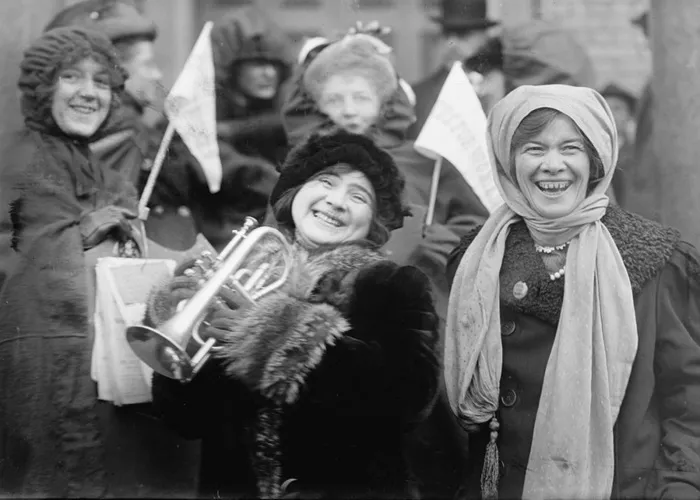January 28 has witnessed several significant events throughout Canadian history, reflecting the nation’s evolving political landscape, social changes, and cultural milestones. This article delves into notable occurrences on this date, providing a comprehensive overview of their context and impact.
What Happened on January 28 in Canadian History?
1. Manitoba Women Get the Vote (1916)
On January 28, 1916, Manitoba became the first province in Canada to grant women the right to vote in provincial elections. This landmark decision was a significant milestone in the women’s suffrage movement across Canada.
The fight for women’s suffrage in Canada gained momentum in the early 20th century. Activists like Nellie McClung and others campaigned tirelessly for equal rights. The suffrage movement was fueled by the changing roles of women during World War I, as many took on jobs traditionally held by men who were away at war.
Manitoba’s decision set a precedent for other provinces, leading to widespread changes in voting rights across Canada. By 1917, women in federal elections were granted the right to vote, marking a significant shift towards gender equality in Canadian politics.
2. The Establishment of the Royal Canadian Air Force (1924)
While not directly on January 28, it is essential to mention that this date is often associated with the establishment of the Royal Canadian Air Force (RCAF) as a separate entity from the British Royal Air Force.
The RCAF was formally established on April 1, 1924, but discussions and preparations leading to its formation began much earlier. The need for an independent air force became apparent during World War I when Canada contributed significantly to aerial warfare.
The establishment of the RCAF marked a crucial step in Canada’s military independence. It allowed Canada to develop its own aviation capabilities and played a vital role in both World Wars and subsequent international conflicts.
3. The Launch of the Canadian Radio Broadcasting Commission (1932)
On January 28, 1932, the Canadian Radio Broadcasting Commission (CRBC) was created to oversee radio broadcasting in Canada.
Before the CRBC’s establishment, radio broadcasting was largely unregulated, leading to a fragmented media landscape. The government recognized the need for a unified approach to broadcasting that would promote Canadian content and culture.
The CRBC later evolved into the Canadian Broadcasting Corporation (CBC) in 1936. This transition solidified public broadcasting’s role in promoting Canadian identity and culture through radio and television.
4. The Signing of the Canada-U.S. Free Trade Agreement (1988)
On January 28, 1988, Prime Minister Brian Mulroney signed the Canada-U.S. Free Trade Agreement (CUSFTA), which aimed to eliminate trade barriers between Canada and the United States.
The agreement was part of a broader trend towards globalization and economic integration during the late 20th century. It followed years of negotiations and debates about trade policies that would benefit both nations.
CUSFTA laid the groundwork for further economic cooperation between Canada and the U.S., eventually leading to the North American Free Trade Agreement (NAFTA) in 1994. This agreement significantly impacted Canada’s economy by increasing trade volumes and fostering closer economic ties with its southern neighbor.
5. The Challenger Disaster (1986)
While not a Canadian event per se, on January 28, 1986, the Space Shuttle Challenger tragically exploded shortly after takeoff, killing all seven astronauts on board. This incident had profound implications for space exploration and safety protocols.
Among those aboard was Christa McAuliffe, a teacher selected to be the first private citizen in space as part of NASA’s Teacher in Space Project. The disaster shocked North America and raised questions about NASA’s safety practices.
The Challenger disaster led to significant changes in NASA’s operations and safety protocols. It also sparked discussions about space exploration’s risks and rewards, impacting public perception of space travel.
Conclusion
January 28 has been pivotal in shaping Canada’s political landscape, social movements, and cultural identity. From granting women the right to vote in Manitoba to establishing crucial institutions like the RCAF and CRBC, these events illustrate Canada’s ongoing evolution as a nation committed to democratic values and cultural representation. The signing of trade agreements further highlights Canada’s integration into global economic systems while reflecting its unique identity amidst international relations.As we reflect on these historical milestones, it is essential to recognize their lasting impact on contemporary Canadian society and governance. Each event serves as a reminder of Canada’s journey toward inclusivity, independence, and global engagement. This article provides an overview of key historical events that occurred on January 28 throughout Canadian history. Each event is contextualized within its time period while highlighting its significance for Canada’s development as a nation.
Related Topics:

